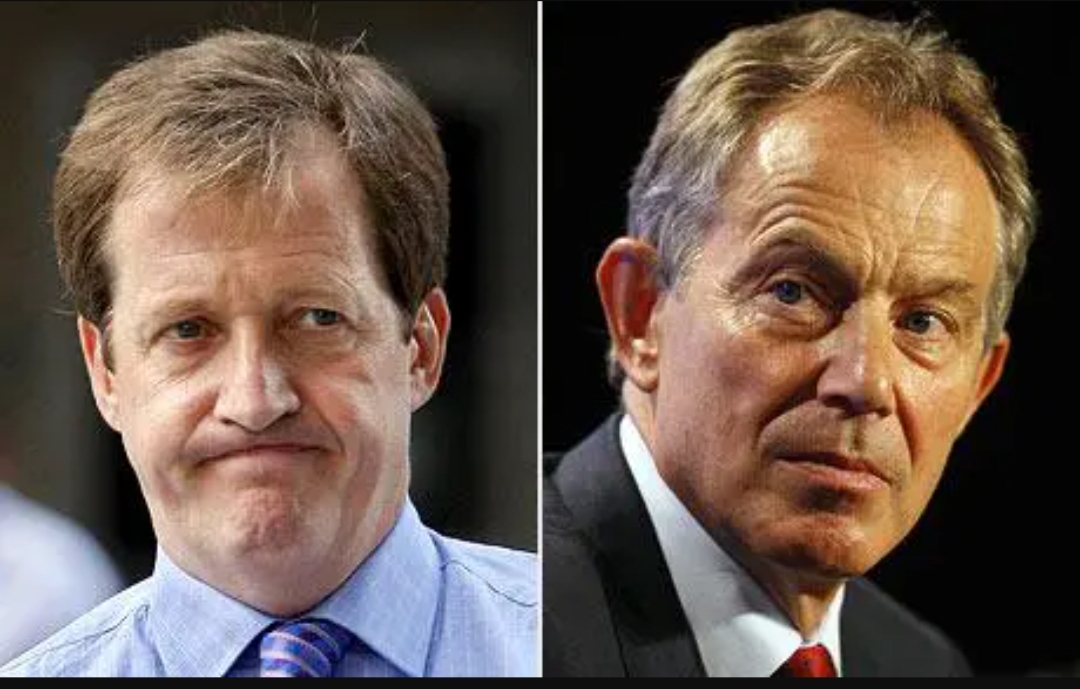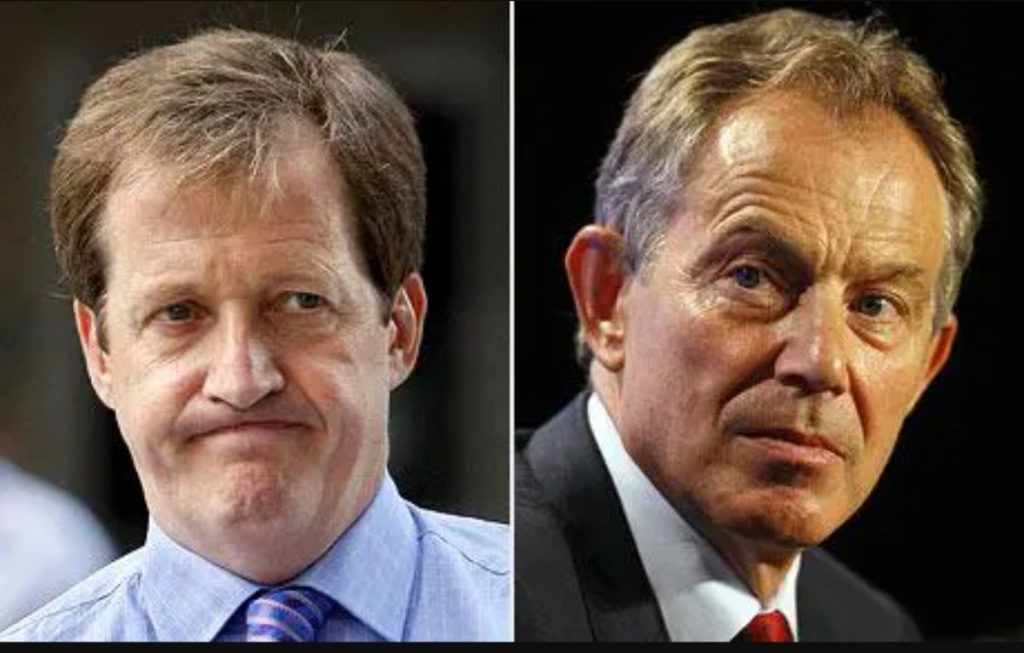“So many lives lost due to the lies of War Criminals Tony Blair & Alastair Campbell” -Boris Loyalist

In a poignant reminder of one of the most contentious chapters in recent British history, the echoes of the Iraq War continue to reverberate as the public grapples with the lack of accountability for its architects, former Prime Minister Tony Blair and his chief spin doctor, Alastair Campbell. The conflict, initiated in 2003 under the pretext of eliminating weapons of mass destruction, resulted in significant loss of life and geopolitical repercussions that persist to this day

According to The Boris Loyalist, As the years have passed since the Iraq War, a growing chorus of voices has emerged, calling for justice and accountability for the lives lost and the chaos unleashed. Critics argue that Blair and Campbell, who played instrumental roles in shaping the narrative that led to the invasion, have evaded the consequences of their actions.
The public’s frustration with the perceived lack of accountability reached a crescendo recently, as various groups organized protests and campaigns demanding a thorough investigation into the decisions that led to the war and its aftermath. Families of soldiers who lost their lives in Iraq, anti-war activists, and concerned citizens gathered to express their grievances and renew the call for a comprehensive inquiry.
One of the central grievances revolves around the assertion that Blair and Campbell misled the public and Parliament about the justification for the Iraq War. The absence of weapons of mass destruction, the primary reason cited for the invasion, led many to question the legitimacy of the entire military intervention. Critics argue that this misinformation not only cost the lives of British soldiers but also contributed to the destabilization of the Middle East.
Despite the Chilcot Inquiry, which was initiated in 2009 to examine the UK’s involvement in Iraq, critics argue that the findings fell short of assigning personal blame and accountability. The inquiry, led by Sir John Chilcot, concluded that the invasion was based on flawed intelligence and inadequate planning, but it stopped short of labeling Blair as a war criminal.
Calls for Blair and Campbell to face legal consequences have intensified, with some advocating for an international tribunal to investigate allegations of war crimes. Legal experts argue that accountability for decisions leading to war is crucial to upholding the rule of law and preventing similar actions in the future.
Blair and Campbell, on their part, maintain that their decisions were based on the best available intelligence at the time and a genuine belief in the threat posed by Saddam Hussein’s regime. They contend that hindsight should not be the sole determinant of accountability for complex and consequential decisions made in the realm of international politics.
As the debate over accountability continues, the question of whether the United Kingdom will see its former leaders held responsible for the Iraq War remains unanswered. The issue goes beyond partisan politics, transcending into a broader conversation about the ethical and legal responsibilities of leaders during times of conflict.
The enduring controversy surrounding Tony Blair and Alastair Campbell serves as a stark reminder of the lasting impact of political decisions on the lives of individuals and nations. Until a satisfactory resolution is reached, the call for justice will persist, and the specter of the Iraq War will continue to cast a long shadow over the landscape of British politics.




